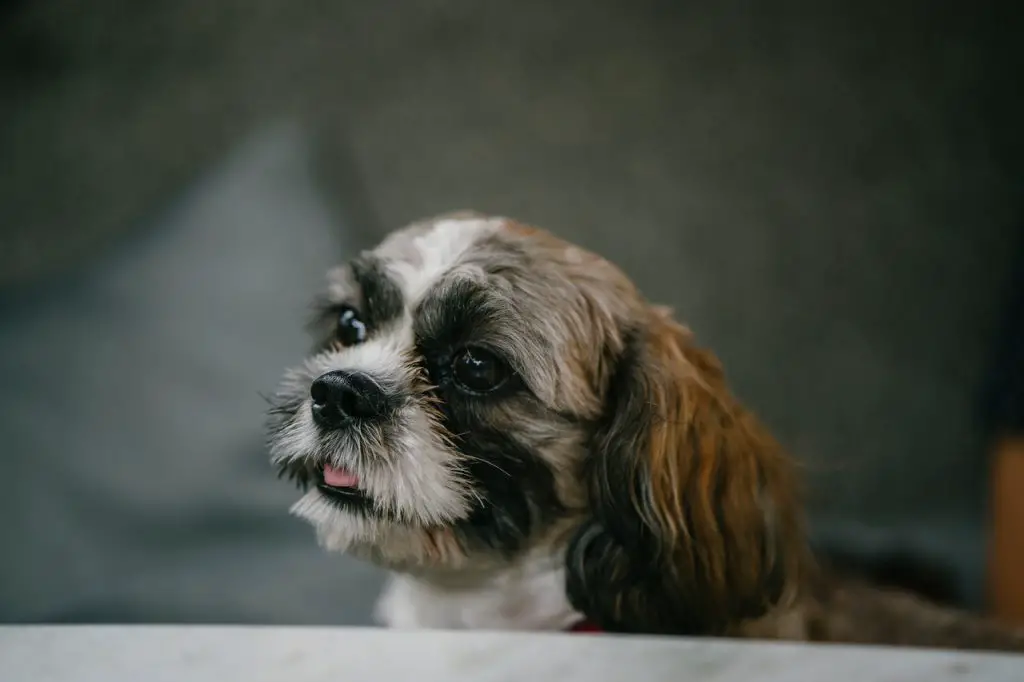Overview
Group: Toy Group
AKC Breed Popularity Rank: No. 20 of 195
Height: 9-10.5 inches
Weight: 9-16 lbs
Life Span: 10-18 years
Temperament: Playful; Affectionate; Outgoing; Exuberant
The Shih Tzu (pronounced “sheet-su” or “sheed-zoo”) is arguably one of the cutest breeds in dogdom. A charming little dog with beautiful coats that come in a variety of colors, the breed has come to be known as a much in-demand family pet because of its laid back temperament and affection for children.
History
It is obvious from its name that the Shih Tzu originated from China. In fact, Shih Tzu means “lion dog” in Chinese. Developed from a cross between the Pekingese and the Lhasa Apso, the breed lived the lap of luxury as lap dogs for Chinese emperors and their families. Imperial breeders were lavished with wealth and gifts if they were able to produce dogs that are more beautiful and loving.
For centuries, the breed was kept secret within the Imperial palaces. It was only in the 1930s that Shih Tzus were finally introduced to the world. Breed clubs in Peking and, later, in England refined the breed to the Shih Tzu of today.
Shih Tzus are among the most popular toy dogs in the world. Famous celebrities who have succumbed to the cuteness of the breed include Queen Elizabeth II, Bill Gates, Mariah Carey, and Beyonce.
General Appearance
The Shih Tzu is a lively, alert, and sturdy dog with a luxurious, long and flowing double coat. The coat comes in a variety of colors, all which are permissible in the Animal Kennel Club’s breed standard. Its head is round and broad, with round, close-set eyes and a cute nose that evoke a sweet, fuzzy feeling whenever you gaze at its face. Its strong, muscular legs are usually hidden beneath its long coat. The dog also has a heavily plumed tail with a white tip.
Shih Tzus are happy, affectionate, and trusting little dogs who enjoy the company of their humans and other pets.
Nutrition
Ideally, Shih Tzus should be given a high quality diet consisting of 50% protein. It is preferable that they be given a raw meat diet, which would include lean meat, organ meats (heart, liver, kidneys), raw eggs, and some dairy products like yogurt and cottage (if they tolerate lactose). It is important to practice good cooking hygiene while preparing the dog’s meal so as to prevent contamination with bacteria.
Many Shih Tzu owners also add fruits and vegetables to their dog’s food, such as broccoli, pumpkin, green beans, apples, pears, and bananas.
If you prefer to feed your Shih Tzu a commercially manufactured dog food, always ask your breeder or veterinarian what is the type or brand to give your dog.
Grooming
Because of its long coat, you will need to brush your Shih Tzu daily. The best brush to use is a wire brush with flexible pins. Brush your dog’s coat gently a layer at a time until you reach the skin. In addition to brushing, it is recommended that you bathe your dog every three or four weeks. Always comb the long hairs along your dog’s face and tie it at the top of the head in a topknot so it won’t get into the eyes and cause irritation. Make it a point to trim its nails and clean its ears after every bath.
If you are uncertain as to how to groom your dog, you can bring it to a professional groomer. Dogs that are not intended for show can look very fine with a simple “puppy trim”.
Exercise
Shih Tzus don’t require much exercise since they are bred to be house dogs. It is sufficient to take them on short walks or have them play in your fenced backyard. You can also play with your dog indoors using their favorite toys.
Training
It is recommended that Shih Tzus be trained in potty, obedience and socialization as early as puppyhood. However, the problem with this dog is that they are so cute and charming that there is a tendency for owners to let them do what they want. When this happens, the resulting dog is not completely housebroken and can be hard to groom.
The best way to train Shih Tzus is by giving them praise and rewards in the form of treats. Harsh corrections are not recommended. If the dog displays undesirable behaviors, it is vital to say “no” and be firm with them, so that they will realize that their behavior is not acceptable.
Health
Shih Tzus are prone to a number of health issues. Although responsible breeders screen their puppies and ensure the health and well-being of their breeding stock, owners should be vigilant of symptoms that may indicate illness in their dog.
Among the diseases that commonly afflict Shih Tzu are entropion, arachnoid cysts, distichiasis and ectopic cilia, fold dermatitis, and patellar luxation.
Costs
The average cost of a Shih Tzu puppy is $700, but can shoot up to $2,000 to $10,000 for top-quality pups. While the yearly upkeep is between $1,000 and $2,000, factors that can increase this cost are grooming and medical expenses. The cost of diagnosis and treatment of the common diseases mentioned above is between $300 and $10,000.
Despite the high cost of care of the Shih Tzu, owners are willing to shoulder the expenses because this affectionate little dog is considered as a valuable member of their family.
Sources
1) Shih Tzu https://www.akc.org/dog-breeds/shih-tzu/
2) 12 Celebrities Who Own A Shih Tzu https://buzzsharer.com/2015/08/11/12-celebrities-who-own-a-shih-tzu/
3) Raw Food Diet for Shih Tzu https://www.petcarerx.com/article/raw-food-diet-for-a-shih-tzu/233
4) Shih Tzu Breed Profile https://www.embracepetinsurance.com/dog-breeds/shih-tzu
5) Shih Tzu Puppies for Sale https://www.nextdaypets.com/Shih-Tzu.htm


